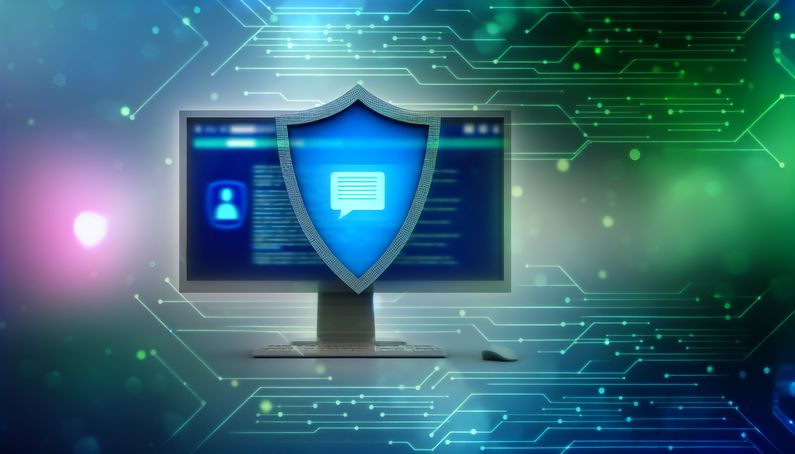
Signal's Screen Security: A Tech-Savvy Shield Against Privacy Intrusions
Signal has taken a bold step in the realm of digital privacy by introducing a screen security feature designed to counteract Microsoft’s Recall on Windows 11. Recall, an AI-driven tool, captures screenshots of active windows, creating a searchable database of user activities. This innovation, while technologically impressive, has sparked significant privacy concerns, particularly for applications like Signal that prioritize secure communications. To combat this, Signal’s screen security employs a Digital Rights Management (DRM) flag to prevent Recall from capturing screenshots of its app windows, ensuring that sensitive conversations remain private (Bleeping Computer). This feature is a testament to Signal’s commitment to user privacy, even as it navigates the challenges posed by Microsoft’s lack of granular privacy settings for developers (TechRadar).
Signal’s Screen Security: A Tech-Savvy Shield Against Privacy Intrusions
The Genesis of Screen Security
Signal’s decision to implement screen security on Windows 11 was driven by the need to protect user privacy against Microsoft’s Recall feature. Recall, an AI-powered tool, captures screenshots of active windows every few seconds, creating a searchable database of user activities. This functionality, while innovative, raised significant privacy concerns, especially for apps like Signal that prioritize secure communications. Signal’s screen security feature, enabled by default, uses a Digital Rights Management (DRM) flag to prevent Recall from capturing screenshots of its app windows. This measure ensures that sensitive conversations remain private and inaccessible to Microsoft’s AI system. (Bleeping Computer)
Technical Implementation of Screen Security
Signal’s screen security leverages DRM technology, traditionally used to prevent unauthorized copying of digital content. By setting a DRM flag on its app windows, Signal effectively makes its interface invisible to screen-capturing tools like Recall. This approach is akin to the technology used by streaming services to prevent screenshots of copyrighted content. The DRM flag acts as a barrier, ensuring that any attempt to capture the screen results in a blank image. This technical solution, while effective, is a workaround necessitated by the lack of granular privacy settings provided by Microsoft for developers. (TechRadar)
Privacy vs. Accessibility: A Delicate Balance
While Signal’s screen security is a robust privacy measure, it introduces challenges for accessibility. Screen readers and other assistive technologies often rely on the ability to capture screen content to provide services to visually impaired users. By blocking screen captures, Signal’s feature may inadvertently hinder the functionality of these tools. To address this, Signal allows users to disable screen security through its settings, albeit with a warning about the privacy implications. This trade-off highlights the ongoing tension between maintaining user privacy and ensuring accessibility for all users. (Signal Blog)
Developer Challenges and Microsoft’s Role
The implementation of screen security underscores the challenges faced by developers in safeguarding user privacy. Signal’s developers have publicly criticized Microsoft for not providing adequate tools to exclude sensitive content from Recall’s capture. The lack of an API or granular settings forces developers to resort to unconventional methods, like repurposing DRM technology, to protect their users. This situation highlights the need for operating system vendors to prioritize privacy features and provide developers with the necessary tools to implement them effectively. Signal’s experience serves as a case study in the broader conversation about privacy and technology. (Ars Technica)
The Future of Privacy in a Screen-Capturing World
Signal’s screen security is a proactive step in the evolving landscape of digital privacy. As AI-powered tools like Recall become more prevalent, the need for robust privacy measures will only increase. Signal’s approach, while effective, is a temporary solution to a broader issue. The future of privacy will likely involve a combination of technological innovation and regulatory oversight to ensure that user data remains secure. As developers and tech companies navigate this landscape, the lessons learned from Signal’s experience will inform future strategies and solutions. (TechCrunch)
Final Thoughts
Signal’s screen security feature represents a significant advancement in the ongoing battle for digital privacy. By leveraging DRM technology, Signal has effectively shielded its users from Microsoft’s Recall, albeit with some trade-offs in accessibility for assistive technologies (Signal Blog). This development underscores the broader challenges developers face in safeguarding privacy without compromising functionality. As AI-powered tools like Recall become more prevalent, the need for robust privacy measures will only grow. Signal’s proactive approach serves as a valuable case study in balancing privacy with technological innovation, highlighting the necessity for operating system vendors to provide better tools for developers (Ars Technica). Looking ahead, the future of privacy will likely involve a combination of technological innovation and regulatory oversight to ensure that user data remains secure (TechCrunch).
References
- Bleeping Computer. (2025). Signal now blocks Microsoft Recall screenshots on Windows 11. https://www.bleepingcomputer.com/news/security/signal-now-blocks-microsoft-recall-screenshots-on-windows-11/
- TechRadar. (2025). Signal blasts Microsoft over Recall privacy failings as secure messaging app is forced to fudge a way of blocking the controversial Windows 11 feature. https://www.techradar.com/computing/windows/signal-blasts-microsoft-over-recall-privacy-failings-as-secure-messaging-app-is-forced-to-fudge-a-way-of-blocking-the-controversial-windows-11-feature
- Signal Blog. (2025). Signal doesn’t recall. https://signal.org/blog/signal-doesnt-recall/
- Ars Technica. (2025). Signal resorts to weird trick to block Windows Recall in desktop app. https://arstechnica.com/security/2025/05/signal-resorts-to-weird-trick-to-block-windows-recall-in-desktop-app/
- TechCrunch. (2025). Signal’s new Windows update prevents the system from capturing screenshots of chats. https://techcrunch.com/2025/05/22/signals-new-windows-update-prevents-the-system-from-capturing-screenshots-of-chats/



